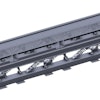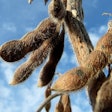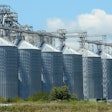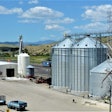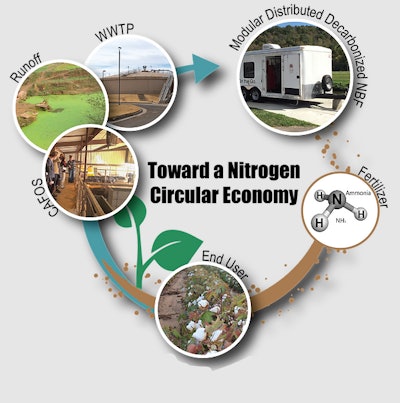
Texas Tech Universityannounces a partnership with four other institutions of higher education and theU.S. National Science Foundation(NSF) to create theNSF Engineering Research Center for Advancing Sustainable and Distributed Fertilizer Production(CASFER).
Texas Tech, headquarters for CASFER, will lead the collaborative center and is joined byFlorida Agricultural and Mechanical University,Georgia Institute of Technology,Case Western Reserve Universityand theMassachusetts Institute of Technology.
CASFER Center DirectorGerri Bottesaid this is a tremendous opportunity to solve one of the largest problems in the world: how we feed the growing population while protecting and sustaining our environment.
“We are going to enable resilient and sustainable food production and we're going to do that by making the next generation of technology to produce nitrogen-basedfertilizermore efficiently while implementing waste streams," said Botte.
"We’re going to transform the U.S. and the world from a nitrogen pollution economy to a nitrogen circular economy in which we're going to recycle nitrogen-based fertilizer and use it to produce crops and food. With CASFER, we are moving toward a nitrogen circular economy.”
Capturing, recycling and producing decarbonized nitrogen-based fertilizers
As center director, Botte, the Whitacre department chair of theDepartment of Chemical Engineeringin theEdward E. Whitacre Jr. College of Engineering, is tasked with leading a diverse team in developing next-generation, modular, distributed and efficient technologies for capturing, recycling and producing decarbonized nitrogen-based fertilizers (NBFs).
The CASFER engineered system will revolutionize the capture, recovery and recycling of NBFs using byproducts from untapped sources of waste including concentrated animal feeding operations, municipal wastewater treatment plants and runoff.
CASFER also will deliver novel synthetic methods that use waste and sustainable resources for decarbonized NBF production.
“One strength of NSF Engineering Research Centers is their ability to bring interdisciplinary academic teams together in convergent research to identify novel approaches to thorny societal challenges,” said NSF Assistant Director for Engineering Susan Margulies.
“With their unique testbeds and industry partners, the centers innovate and translate solutions that are effective and sustainable.”
Most nitrogen-based fertilizers are lost to the environment
More than 50% of the world’s population is supported by synthetic NBFs, though just 20% of NBFs produced translate into food. The other 80% are lost to the environment, creating serious environmental, health and socioeconomic impacts.
“Texas Tech University is proud of Dr. Botte and the entire senior management team who conceived and competed for this prestigious award,” Heppert said.
“CASFER researchers will study problems of national and global importance, consistent with Texas Tech’s research mission. We are very excited to be working with this distinguished team of academic and industry partners.”
NSF grant designed to foster innovation and collaboration
自1985年项目的《盗梦空间》,NSF has awarded fewer than 100 grants to open Engineering Research Centers (ERCs), which are designed to foster innovation and collaboration between industry leaders, government agencies and institutions of higher education.
“For decades, NSF Engineering Research Centers have transformed technologies and fostered innovations in the United States through bold research, collaborative partnerships and a deep commitment to inclusion and broadening participation,” said NSF Director Sethuraman Panchanathan. “The new NSF centers will continue the legacy of impacts that improve lives across the nation.
CASFERreceived a $26 million grant from the NSF for an initial five-year period with the possibility of renewing the grant for five more years and another $25 million.
“The Engineering Research Center award is the most prestigious and difficult award to obtain from the National Science Foundation,” said Botte.



